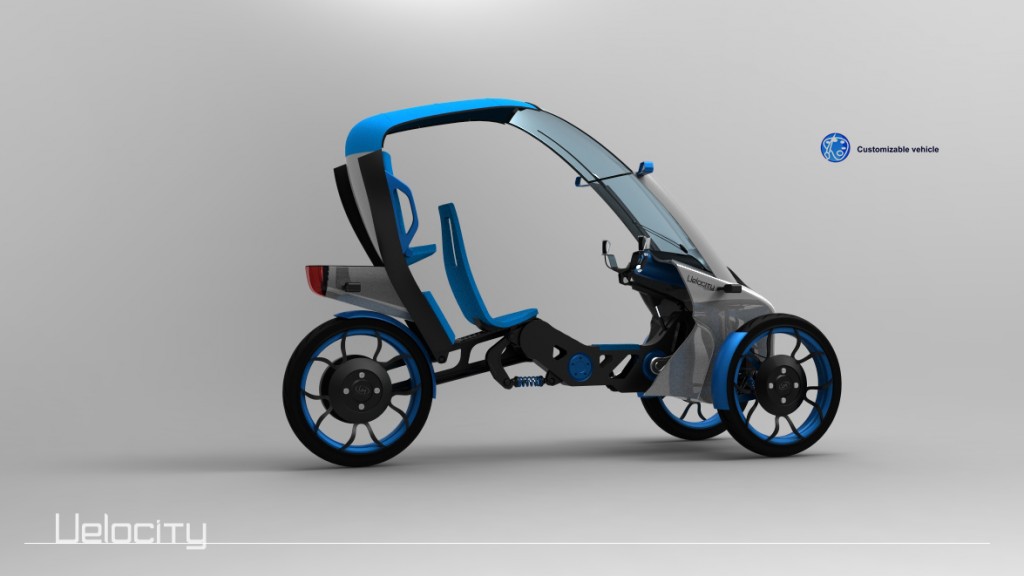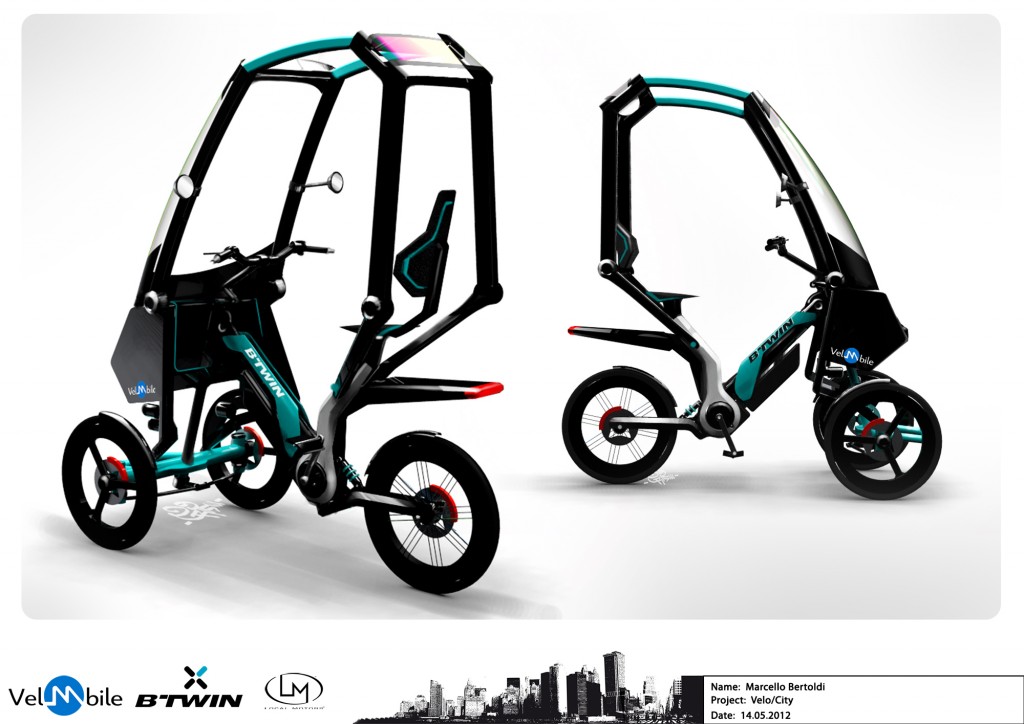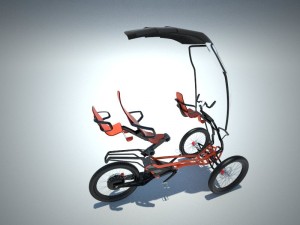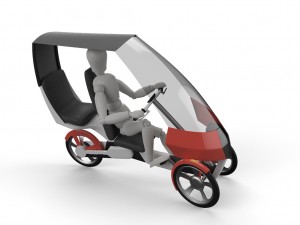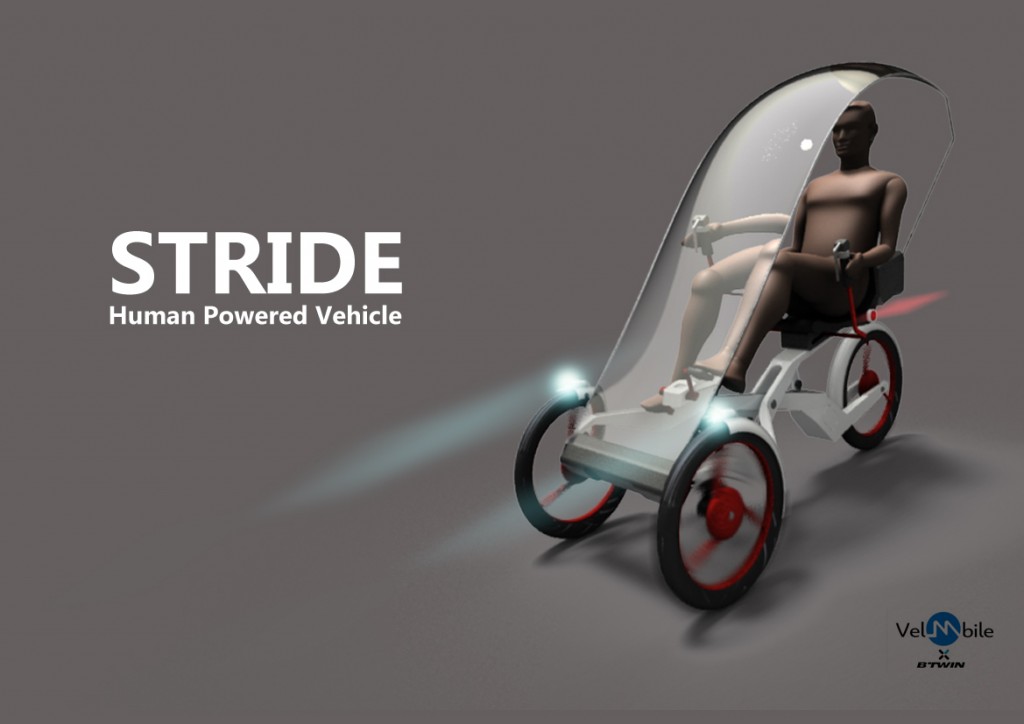A couple of weeks ago I saw my first B’Twin branded bicycle. It was a fairly typical and non-descript hybrid MTB style cycle being used on a British Seafront. It likely would have gone unnoticed altogether, as just another Bike Shaped Object moving in the shadow of the ICE recumbent Trike and the elegant Pashley step through I also saw, had it not been for some news I should have reported on earlier this year.
This may be a bit stale by now, but I became aware of B’Twin through a report on Recumbent Journal (RJ): a US based blog covering all things recumbent, including velomobiles. RJ reported on a design competition posted at the opensource automotive design community The Forge. The stated object was to design a velomobile that could be built for less than $2000 for a given set of criteria, and a winner was announced at the end of May 2012.
The particular merits of the RJ report was not the comment on the various designs, from which they largely refrained, but rather the nature of the company sponsoring the competition and what the implications might be for the future of velomobiles.
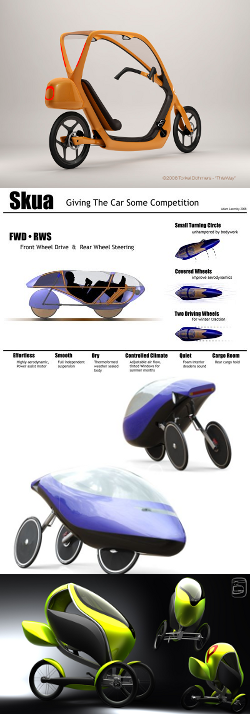
From top to bottom:
Torkel Dohmers’ “ThisWay”
Adam Lazenby’s “Skua”
Tim Turrini-Rochford’s “NoVelo”
Speed Studio Design’s “Trik-e”
Design competitions and velomobile concepts are not new. Various individuals with industrial design skills or academic interest have produced concept designs, several of which are included in the upcoming Velomobile Database. In 2009 the excellent Bicycle Design Blog, with an interest in tapping the huge “blue ocean” of potential utility cyclists, organized a design competition which was won by a design with many velomobile features. Last year, 2011, Bicycle Design was mooting another similar competition. The difference here is, that this is the first time a commercial organization has done so, putting up a prize of $7500. This is significant as commercial organizations exist to make money, and do so by selling products to a market that is willing to buy them. As RJ points out, the group behind the competition sponsor, B’Twin, is the french based Oxylane group. Oxylane produces a large range of, often innovative, sporting goods and is considered to be the largest sporting goods retailer in the world. The implication being, they see a market, and one sufficiently large enough form them to swim in, ready to be tapped.
The designs (see the winner and some finalists shown below) have many things that could be criticized not least the failure to achieve the desired price point. However as RJ points out the motive behind sponsoring such competitions is to help stimulate the internal design team that is working on the project in a place where there are the resources to refine the design to the desired level.
The apparent convergence of the designs on the same configuration adopted by the recently re-launched Drymer, (upright, head-covered, tilting, tadpole trike) is a fruit of the competition specification but it does offer clues on the corporate mindset which tends to be constrained by focus groups and ideas largely confined to an existing paradigm. Something not quite so far removed from a recognisable upright cycle with a bit of automotive protection and styling would probably be easier to sell from that perspective.
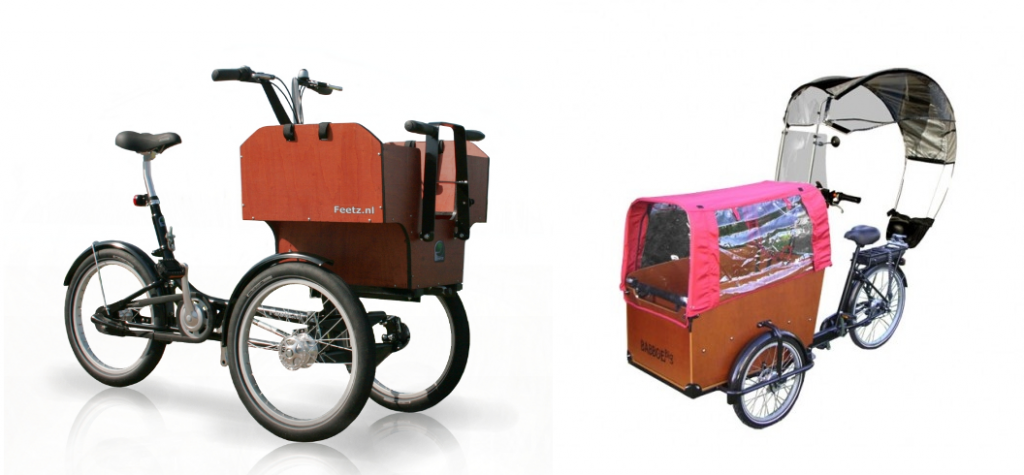 Having said that, one can already put together a machine with many of the desired characteristics by combining the Feetz tilting trike (Their Old Website), now supplied by the Belgian velomobile manufacturer Fietser, with one of the weather coverings by the french manufacturer Veltop. All for less than €1954 (349.00 + 1500.00 + 105.00) including VAT which works out at something like $2400 or £1600 plus delivery to your chosen destination. I had a short test-ride on a Feetz from Cyclesense in Tadcaster few years back, and left with a positive impression. It would be somewhat of a Kludge compared to the entries below but if you exclude the VAT and shipping it would certainly come close to the $2000 target of the competition. The item I find the most challenging is the requirement for eAssist as this currently adds a significant amount of both weight and cost.
Having said that, one can already put together a machine with many of the desired characteristics by combining the Feetz tilting trike (Their Old Website), now supplied by the Belgian velomobile manufacturer Fietser, with one of the weather coverings by the french manufacturer Veltop. All for less than €1954 (349.00 + 1500.00 + 105.00) including VAT which works out at something like $2400 or £1600 plus delivery to your chosen destination. I had a short test-ride on a Feetz from Cyclesense in Tadcaster few years back, and left with a positive impression. It would be somewhat of a Kludge compared to the entries below but if you exclude the VAT and shipping it would certainly come close to the $2000 target of the competition. The item I find the most challenging is the requirement for eAssist as this currently adds a significant amount of both weight and cost.
Winning Entry first:


